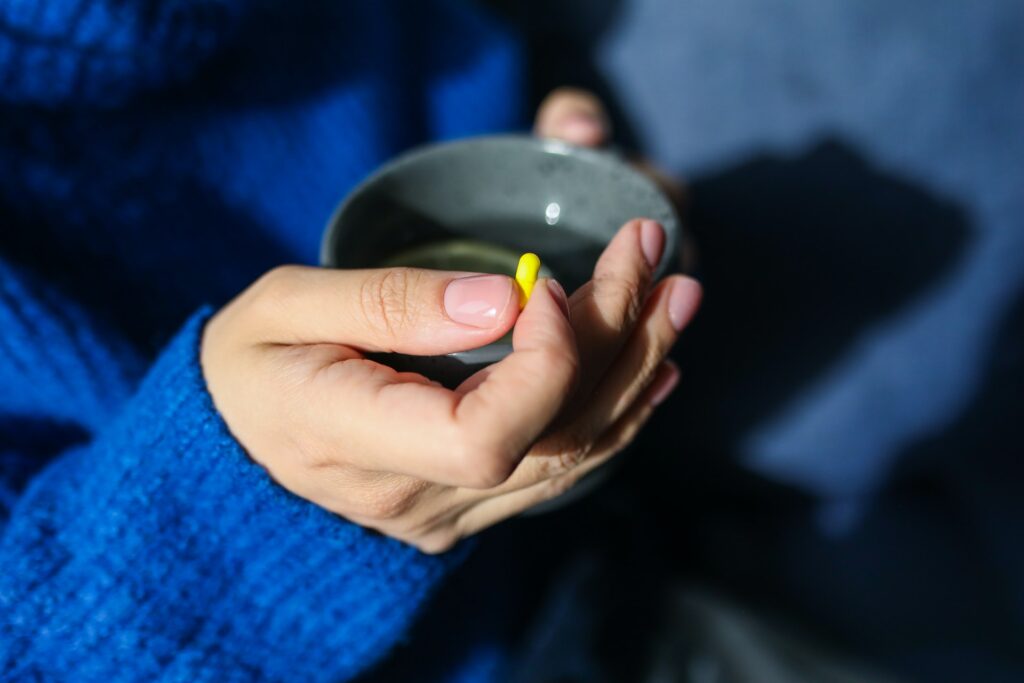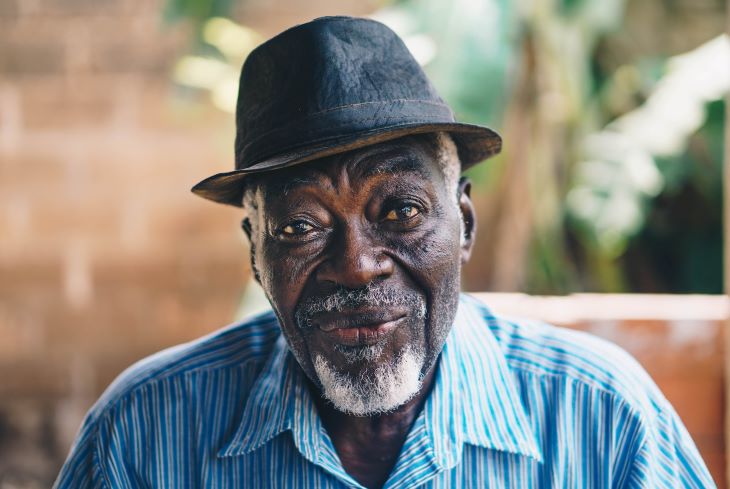Drug & Alcohol Rehab in Newark On Trent
Newark On Trent is located in the heart of Nottinghamshire – an area known for its historical significance, attractive scenery, and unfortunately, a significant rise in substance addiction cases over the years.
While numerous counties in the UK are facing similar drug and alcohol-related problems, the following statistics for Nottinghamshire are a matter of deep concern.
According to figures from the Nottinghamshire JSNA [1], worrying changes in alcohol consumption have been observed since the COVID-19 pandemic: including more people drinking at home, and increased referrals for treatment.
In 2021, Newark and Sherwood’s hospitals recorded a rate of just under 600 alcohol-related admissions per 100,000 people.
Moreover, this community-wide need for treatment at a drug and alcohol rehab in Newark on Trent is reflected in harrowing LAPE statistics [2]. In 2020, 41 individuals lost their lives to alcohol-related conditions, including chronic liver disease and cardiac issues.
In nearby Nottingham, statistical reports have noted an increase in drug-related crime and antisocial behaviour linked to illicit substance use.
One Nottingham City Gov report [3] revealed that there was a 40% increase in drug offences between 2019-2020, with 35% of respondents perceiving rowdy intoxication to be a fairly big problem in the city centre.
What is Drug and Alcohol Addiction?

Many factors can contribute towards someone developing a drug or alcohol addiction: including their living situation, past life events, and history of mental health.
However, another key process that separates recreational use from a worrying dependency happens in the brain.
Certain neurological changes [4] occur in the brain’s reward centre which, over time, will make quitting without medical aid almost impossible.
When we initially take a substance, the sudden dopamine release throws the body and brain off balance to provide a rush of satisfaction.
But with repeated consumption, the brain’s reward circuitry registers the substance as normal and will require greater doses to release the same amounts of dopamine (a neurotransmitter related to happiness).
This means that their tolerance has increased, and their response to drugs or alcohol diminished.
However, this doesn’t stop the brain from associating substance use with its reward response, meaning the individual will still suffer from intense cravings.
The resulting condition is a debilitating brain disease known as Substance Use Disorder (SUD [5]).
Rather than simply having a high tolerance or mild dependency, individuals with SUD cannot focus on anything unrelated to drug or alcohol use to the point that it consumes their lives.
At Rehab Recovery, we offer free advice from a team of non-judgemental professionals, many of whom are in recovery and understand how hard it can be to change your relationship with addiction.
For more information about rehab in Newark On Trent, simply reach out to our 24/7, confidential hotline on 0800 088 66 86.
Drug and Alcohol Withdrawal

Prolonged use will eventually lead to psychological and physical dependence in need of treatment at a drug and alcohol rehab in Newark On Trent. [6]
Especially if they’ve been taking drugs or consuming alcohol for a long time, dependent individuals will likely experience withdrawal symptoms when they try to quit.
Different substances will cause different types of withdrawal symptoms to manifest as the brain and body try to function normally.
Withdrawal symptoms from alcohol include emotional fatigue, fever, shaking, and even Delirium Tremens if the individual is severe enough.
In contrast, opioid withdrawal symptoms are reminiscent of having the flu, while quitting cocaine suddenly will have mostly psychological side effects.
Because each person’s experience of withdrawal is different and reliant on many factors, it’s crucial to seek professional help.
At a drug and alcohol rehab in Newark on Trent, addiction specialists are on hand 24/7 to support patients through their detoxification and prevent withdrawal symptoms.
Admissions Process into a Drug and Alcohol Rehab

For individuals suspecting they may have a problem with drugs or alcohol, picking up the phone can be the most challenging step, let alone managing the entire rehab admissions process.
To help you enter the optimal drug and alcohol rehab, Rehab Recovery has designed a referral process that’s bespoke, plus easy to navigate.
Within seconds of dialling the number below, you’ll be put into direct contact with a sympathetic, knowledgeable member of the Rehab Recovery admissions team [7].
During this phase, it’s important that you’re prepared to answer questions about your addiction and unique situation. This will help our staff personalise your experience and plan a treatment route that’s right for you.
At Rehab Recovery, we offer free advice from a team of non-judgemental professionals, many of whom are in recovery and understand how hard it can be to change your relationship with addiction.
For more information about rehab in Newark On Trent, simply reach out to our 24/7, confidential hotline on 0800 088 66 86.

After this initial chat comes a more comprehensive medical and psychological evaluation performed by an addiction consultant.
This telephone consultation will be entirely confidential and be scheduled to align with your personal schedule.
Providing as much information as you can helps our specialists choose a local rehab clinic to fit your treatment preferences, SUD severity, budget, and any additional health needs.
After your bespoke assessment, you’ll be presented with a shortlist of clinics to meet your criteria, and will be able to start booking treatment.
The Rehab Recovery team will continue helping you every step of the way, including making travel arrangements to the facility and providing any last-minute guidance.
At Rehab Recovery, we offer free advice from a team of non-judgemental professionals, many of whom are in recovery and understand how hard it can be to change your relationship with addiction.
For more information, simply reach out to our 24/7, confidential hotline on 0800 088 66 86.
Dual Diagnosis Treatment in Rehab

When someone suffers from substance addiction, they may also be battling another invisible illness.
Patients entering a drug and alcohol rehab in Newark on Trent for co-occurring disorders [8] are victims of both SUD and mental illness.
Sadly, the connection between addiction and psychiatric illness is a common one: with more than half of SUD patients in the UK presenting an additional mental health need.
On one side of the coin, substance use can occur as a byproduct of someone trying to self-medicate their mental illness.
For instance, individuals with depression may use stimulants like cocaine to make themselves feel better but develop a dangerous dependency.
On the other side, drug and alcohol use can cause a previously manageable mental illness to worsen into something debilitating.
Due to the complex nature of co-occurring disorders, combined treatment rehab is the best way to achieve recovery.
Integrated treatment starts by undergoing a screening wherein a specialist will evaluate your psychosocial, behavioural, cognitive, and physical symptoms.
Professionals can then begin to treat your conditions simultaneously via a personalised detox, behavioural interventions, cognitive therapies, and holistic support.
Medicated Detox at a Drug and Alcohol Rehab in Newark on Trent

Also referred to as the process of “getting clean”, detox is the process of flushing drugs or alcohol from someone’s body so that they start functioning normally.
Detoxing alone with the looming threat of withdrawal symptoms can be a formidable challenge, which is why residential programmes are encouraged.
At a drug and alcohol rehab in Newark on Trent, you’ll be offered a medically supervised detox with comprehensive support [9] while you stabilise.
Following the initial health assessment and detox planning session, patients will check into comfortable accommodation to start beginning their taper.
This refers to the slow reduction of drug or alcohol levels in the body and is carefully monitored by on-site health professionals.
It’s during this early stage that withdrawal symptoms may start to arise. Thankfully, you’ll be given round-the-clock supervision to deal with any adverse side effects as they arise.
Oftentimes, patients are given responsibly controlled, bespoke medications to help ease their symptoms: a protocol known as Medication Assisted Therapy (MAT).
Many of these medications are for the treatment of short-term withdrawal symptoms within the first 1-3 weeks of recovery.
These include anti-nausea medications, central nervous system relaxants, anti-inflammatories, and antiseizure drugs for the prevention of DT.
Those with a dual diagnosis may receive longer-term medications for protracted mental symptoms such as depression, anxiety, or psychosis.
Therapeutic Treatment

While individuals can tackle their physical dependencies during detox, extended therapeutic measures [10] are needed to instil lifelong recovery.
During the treatment process at a drug and alcohol rehab in Newark on Trent, patients are offered a variety of therapy styles: from group techniques, behavioural interventions, holistic counselling, and many more.
At Rehab Recovery, we offer free advice from a team of non-judgemental professionals, many of whom are in recovery and understand how hard it can be to change your relationship with addiction.
For more information, simply reach out to our 24/7, confidential hotline on 0800 088 66 86.

Though each programme is carefully personalised, frequently encountered strategies include:
- Cognitive Behavioural Therapy [11] (CBT): Available in both individual and group settings, CBT teaches addicted individuals to link their thoughts, feelings, and actions in a way that helps them understand how to prevent substance use. With the help of a therapist, attendees can identify their entrenched automatic thoughts, such as internalised feelings, fear, or self-doubt, and understand how they trigger negative behaviours.
- Dialectical Behavioural Therapy [11] (DBT): healing from the damage caused by SUD is often an emotional affair, with many individuals having intense, even traumatic emotions at the root of their addiction. DBT teaches patients at a drug and alcohol rehab in Newark on Trent to manage these feelings and deal with conflicts more efficiently. During workshops, they’ll learn to confront emotional damage while learning ways to make their situation bearable and life more enjoyable
- Holistic Therapy [12] (HT): Psychotherapies in rehab may address the root cognitive causes of addiction, but they don’t address emotional, physical, and psychological imbalances. HT programmes were introduced to address these imbalances and cultivate “whole” recoveries for addiction sufferers. The activities made available to patients will depend on the specialities of their rehab and their personal preferences. Examples include Tai Chi, Acupressure, yoga, meditation, animal-assisted therapy, and nutritional education.
- Family Therapy [13] (FT): Although no one treatment can guarantee full relapse prevention, those who receive Family Therapy in rehab are often at lower risk of returning to substance misuse after treatment. FT sessions at rehab teach loved ones about SUD, relapse triggers, addictive behaviours, and ways to create a healthier home environment.
Aftercare at a Rehab in Newark On Trent

Although rehab equips patients with the skills needed to avoid relapse, the prevalence of triggers in wider society can trip up even the most fastidious individuals.
To help you keep on top of your coping strategies, a drug and alcohol rehab in Newark On Trent will provide a personalized aftercare service that can be intensive or more remote.
All aftercare plans are complimentary and carry former patients through the first year of their post-rehab journey.
Those in addiction recovery must have access to a team of doctors, caseworkers, and specialists that understand their personal struggle with SUD.
Aftercare services include health evaluations, outpatient talking therapy, and support in achieving certain life goals.
Depending on their goals, individuals can receive academic support, career guidance, and life coaching.
Many individuals in recovery also benefit from peer support systems in the form of 12-step programmes.
Thriving communities such as SMART [15] Recovery, Narcotics Anonymous [16] or Alcoholics Anonymous [17] give former patients a sense of belonging and a chance to continue working on themselves.
Such groups also help attendees put their problems into perspective and listen empathetically to those going through similar strife.
At Rehab Recovery, we offer free advice from a team of non-judgemental professionals, many of whom are in recovery and understand how hard it can be to change your relationship with addiction.
For more information about rehab in Newark On Trent, simply reach out to our 24/7, confidential hotline on 0800 088 66 86.

References
[1] Nottingham Insight: Substance Misuse in Young People and Adults, 2022 https://www.nottinghamshireinsight.org.uk/research-areas/jsna/cross-cutting-themes/substance-misuse-young-people-and-adults-2022/
[2] Local Alcohol Profiles for Newark and Sherwood https://fingertips.phe.org.uk/profile/local-alcohol-profiles/data#page/1/gid/1938132984/ati/401/iid/93763/age/1/sex/4/cat/-1/ctp/-1/yrr/1/cid/4/tbm/1
[3] Nottingham City Council Cumulative Needs Assessment, October 2021
[4] The Science of Addiction: From Neurobiology to Treatment https://www.google.co.uk/books/edition/The_Science_of_Addiction_From_Neurobiolo/8Ib9PRXDPIUC?hl=en&gbpv=0
[5] Substance Use Disorders: a Biopsychosocial Perspective https://www.google.co.uk/books/edition/Substance_Use_Disorders/X7H2DwAAQBAJ?hl=en&gbpv=0
[6] Principles of Drug Addiction Treatment: A Research-Based Guide (2nd Ed.) https://books.google.co.th/books?id=mtMdJ3qqSnQC&printsec=frontcover&dq=addiction+treatment&hl=en&sa=X&ved=2ahUKEwiDlMP3zob3AhXiwjgGHYJtDZ8Q6AF6BAgDEAI#v=onepage&q=outpatient&f=false
[7] Rehab Recovery: Meet the Team https://www.rehab-recovery.co.uk/meet-the-team/
[8] Co-occurring Mental Illness and Substance Use Disorders: A Guide to Diagnosis and Treatment https://www.google.co.uk/books/edition/Co_occurring_Mental_Illness_and_Substanc/vkQ4DwAAQBAJ?hl=en&gbpv=0
[9] Inpatient Detoxification for Drug and Alcohol Dependency https://www.google.co.uk/books/edition/Inpatient_Detoxification_for_Drug_and_Al/kFkFEAAAQBAJ?hl=en&gbpv=0
[10] Innovations in the Treatment of Substance Addiction https://www.google.co.uk/books/edition/Innovations_in_the_Treatment_of_Substanc/vzbzuAEACAAJ?hl=en
[11] Rehab Recovery: Cognitive Behavioural Therapy in Addiction Treatment https://www.rehab-recovery.co.uk/addiction-treatments/cognitive-behavioural-therapy/
[12] The Oxford Handbook of Dialectical Behavioural Therapy https://www.google.co.uk/books/edition/The_Oxford_Handbook_of_Dialectical_Behav/PE5yDwAAQBAJ?hl=en&gbpv=0
[13] Healing and Wholeness: Complementary and Alternative Therapies for Mental Health https://www.google.co.uk/books/edition/Healing_and_Wholeness/XM_CWVYE_KEC?hl=en&gbpv=0
[14] Rehab Recovery: Family Addiction Counselling https://www.rehab-recovery.co.uk/addiction-treatments/family-therapy/
[15] UK Smart Recovery: Our Programmes https://smartrecovery.org.uk/smart-recovery-programme-copy/
[16] Narcotics Anonymous in the United Kingdom: Need help? https://ukna.org/content/need-help
[17] Alcoholics Anonymous: About AA https://www.alcoholics-anonymous.org.uk/About-AA


